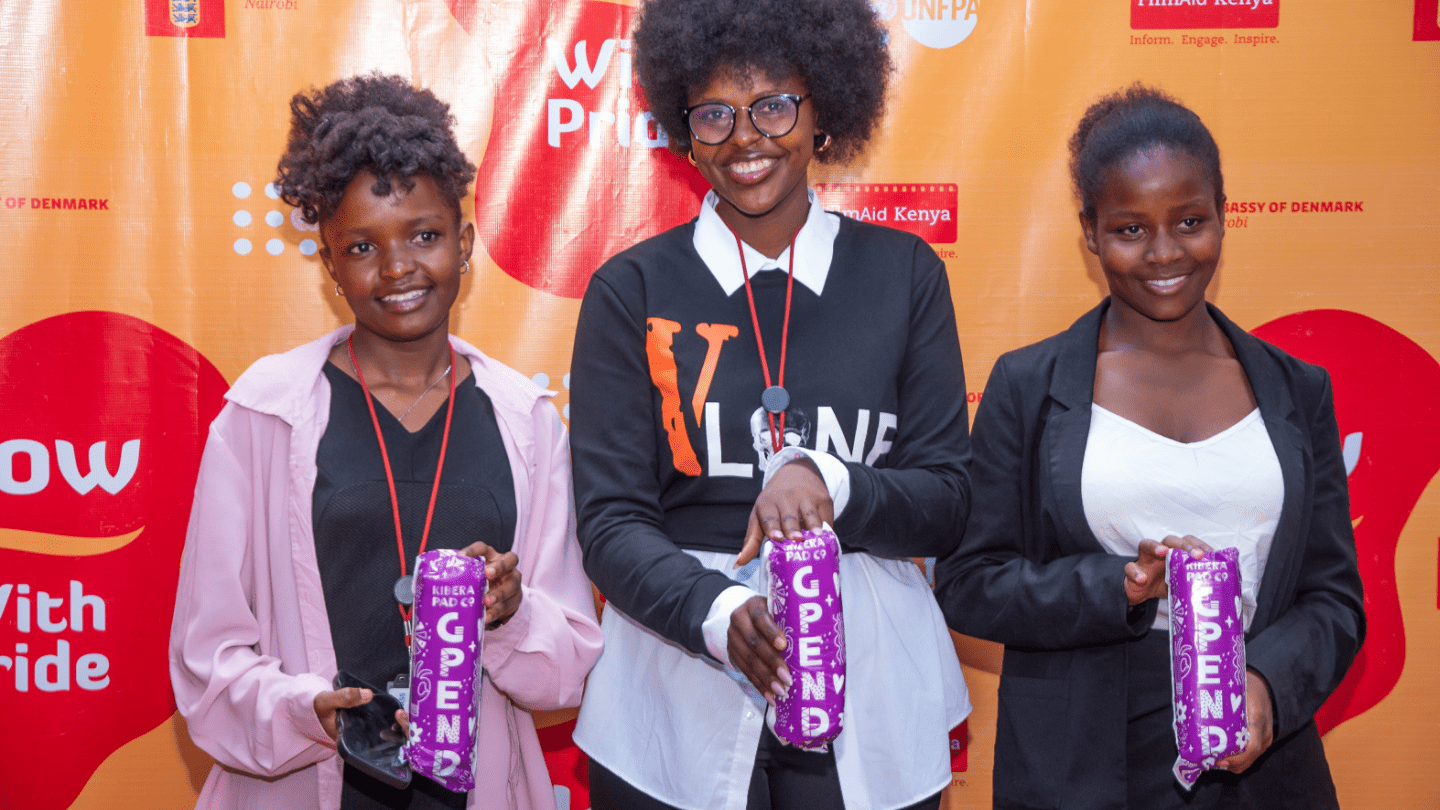UNFPA—the United Nations sexual and reproductive health agency, and the Embassy of Denmark in Kenya have launched the “Flow With Pride,” campaign, an initiative aimed at eradicating period stigma and period poverty while promoting menstrual health and dignity.
Despite being a natural and healthy part of life, menstruation in Kenya is still surrounded by stigma that is rooted in taboos and misinformation. The ‘Flow With Pride’ campaign will work to end period shaming and the associated harmful stereotypes and barriers that serve to deepen gender inequality, limiting opportunities for over 12 million adolescent girls and women in Kenya who experience menstruation each month. Addressing menstrual health not only safeguards the dignity and health of women and girls but also ensures that they can fully exercise their rights.
To launch the campaign, UNFPA and the Embassy of Denmark have partnered with Common Light Pictures, AL IS ON Production, and FilmAid Kenya to conduct widespread screening of the powerful film Impure, a coming-of-age story inspired by the tragic 2019 incident of a young girl from Kabiangek, Kenya, who took her own life after being ridiculed for her first period. Community screenings of Impure will be held in Nairobi, Bomet, West Pokot, Turkana, Garissa, and Kwale as part of awareness and education efforts. The screenings will be accompanied by facilitated dialogues aimed at creating safe spaces for open conversations about menstrual health while addressing harmful societal norms.
“Period stigma and shame create barriers that prevent women and girls from realizing their academic, social, and economic aspirations,” said UNFPA Kenya Representative Anders Thomsen. "This campaign is a call to action for all of us to ensure no girl is lost or left behind, by building a society where menstruation is embraced as a normal and healthy part of life."
Beyond the stigma, challenges in managing menstruation continue to create further barriers for women and girls. These challenges include a lack of access to menstrual health products, lack of information, and inadequate care for complications, which exclude them from education, work, and economic opportunities. A situational analysis by the Ministry of Health revealed that over half of Kenyan girls still struggle to access menstrual hygiene products. For girls in low-resource settings, these challenges often translate into missed school days, with some losing up to 20% of the academic year.
In addition to community-level engagements, the campaign will advocate for stronger action from governments, policymakers, and partners to enhance the implementation of menstrual health and hygiene policies and increase funding for menstrual health initiatives.
"Denmark is committed to empowering girls and women to reach their full potential. Access to safe, decent menstrual health and hygiene improves mental well-being, boosts school attendance and work participation, leading to better grades for students and fewer lost wages for women,” said Ambassador to the Royal Danish Embassy to Kenya, Stephan Schønemann.
The Ambassador further noted that Denmark is proud to partner with UNFPA in Kenya in launching the Flow With Pride campaign, which will support Kenya’s commitment to fostering a society where no girl is left behind because of her period, and where women and girls thrive.
The campaign is set to run up to December 2025 and will bring together civil society, grassroots organizations, development agencies, government, and private sector partners in promoting and improving menstrual health and dignity across Kenya.



